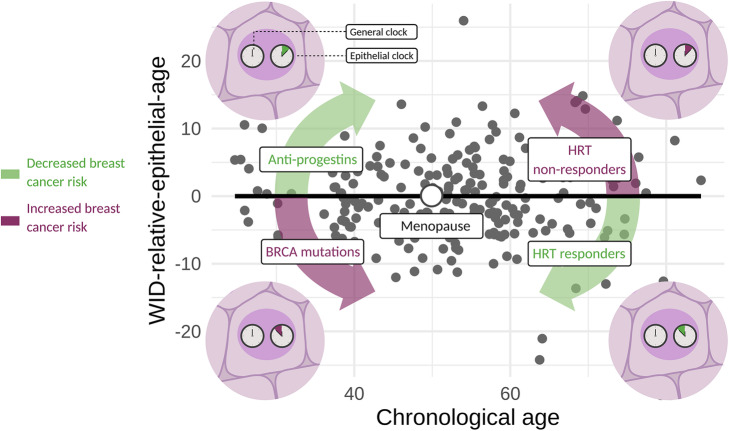Fig. 5.
Menopause as a turning point for the WID-relative-epithelial-age: distinct impacts of hormonal exposure or genetic factors on the WID-relative-epithelial age before or after menopause. Before menopause, factors increasing breast cancer risk (e.g., BRCA mutations) result in a reduced WID-relative-epithelial-age, while anti-progestins (such as ulipristal acetate or mifepristone) increase the WID-relative-epithelial-age. After menopause, this pattern is switched: HRT responders exhibit a reduced WID-relative-epithelial-age, but this effect is not observed in HRT non-responders and may indicate an increased risk for breast cancer in these women. Therefore, an acceleration or deceleration of the WID-relative-age (age discordance) has different effects before and after menopause

